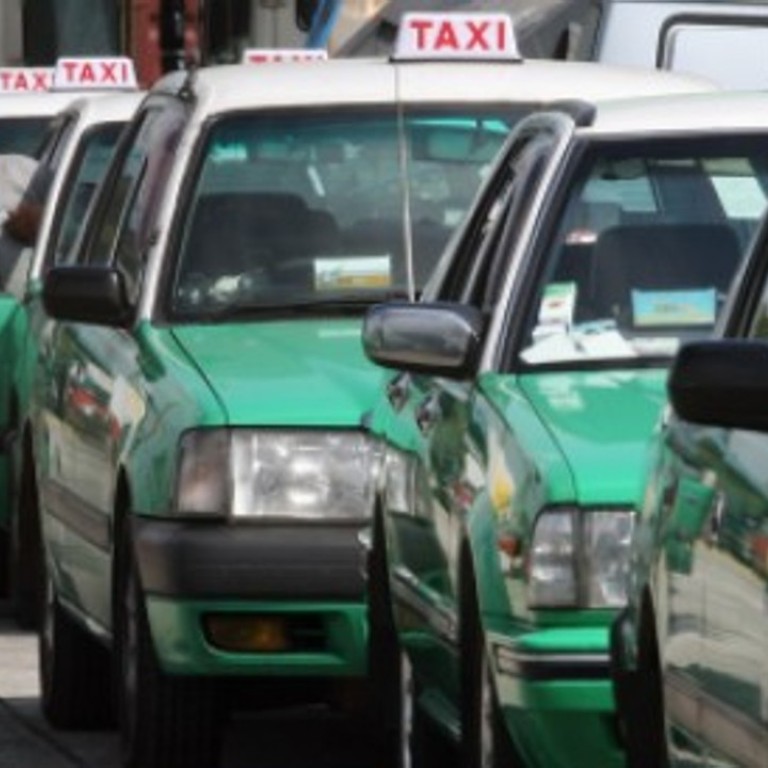
China’s Guangzhou to open up government-backed Uber-like car-hailing app after trial run, but locals not convinced
Residents see little competitive advantage to new service vis-a-vis Didi Kuaidi, Uber
The southern Chinese city of Guangzhou has been conducting a trial run of its government-backed Uber-like car-hailing app for over three months and is now set to launch it commercially in February, according to the government-run Nanfang Daily.
During the testing period, the ride-booking service has been connecting users with an official fleet of about 300 licenced vehicles, the report said.
The service is called Ru yue - which translates as “punctual appointment” - and the cars in operation are either Toyota Camrys or Nissan models, it added.
READ MORE: After government ban, now Guangzhou wants to copy Uber
Until now, it has only been available to officials of the city’s municipal transport authority, political advisers, and deputies to the Guangzhou Municipal People’s Congress.
Moreover, the fees it charges are more expensive than those levied by regular taxis in the city.
The cheapest flag-fall rate is 18 yuan (US$2.83), with an additional 2.7 yuan charged per kilometre. This compares to a fixed start fee of 10 yuan and a per-km charge of 2.4 yuan among regular cabs.
However, Ru yue has been offering an initial 50 per cent discount during its trial run to drum up interest.

All of the service’s drivers are veteran cabbies with a history of working for established taxi operators in the city, according to the report
But unlike regular taxi drivers, they do not have to pay rental costs for the vehicles they use, or gas bills or maintenance fees, it added.
It claims drivers can earn better salaries working for the app, with an expected monthly base pay of 3,000 yuan to 4,500 yuan.
The immediate response from local people to the roll-out of the app was mixed. It will compete with China’s market-leading car-hailing app Didi Kuaidi, San Francisco-based Uber, the No 2 player in the market, as well as a handful of smaller domestic players like Ucar.
“I think few residents will care much about this government-led app unless it becomes cheaper than Uber and Didi,” said Zhu Yinghua, a retired teacher who regularly uses Uber’s services.
“If it’s more expensive than regular taxis, it won't really have anything to offer.”
Uber and Didi Kuaidi are known to have been offering generous subsidies to drivers and users in order to expand their market share.
Both start-ups have been investing heavily to enlarge their market presence while also engaging in large fundraising rounds that have earned each several million US dollars in recent months.
Both start-ups have struggled during a turbulent year that has seen them fend off a sustained backlash from established taxi operators not to mention a government crackdown on illegal taxi-hailing apps. This resulted in Uber’s offices being raided in several Chinese metropolises as well as Hong Kong.
The central government responded by summoning representatives of the market-leading apps to a meeting recently, during which they were given a unspecified deadline to legalise their operations.
Following this, Beijing published draft regulations last month that would impose taxi-like restrictions on private car-hailing services that would raise their costs.
Drivers for the apps have complained that the new rules eliminate any income advantage the apps promised.
Two other Chinese cities – southern Guangzhou, and Hangzhou in east China’s Zhejiang province - are also among Uber’s top five busiest cities worldwide, it showed.
The draft regulations, if approved, would require the new services to meet the same rules as existing taxi firms. They would be expected to register as taxi operators, insure vehicles and passengers, sign drivers to labour contracts and share data with local transport authorities.

